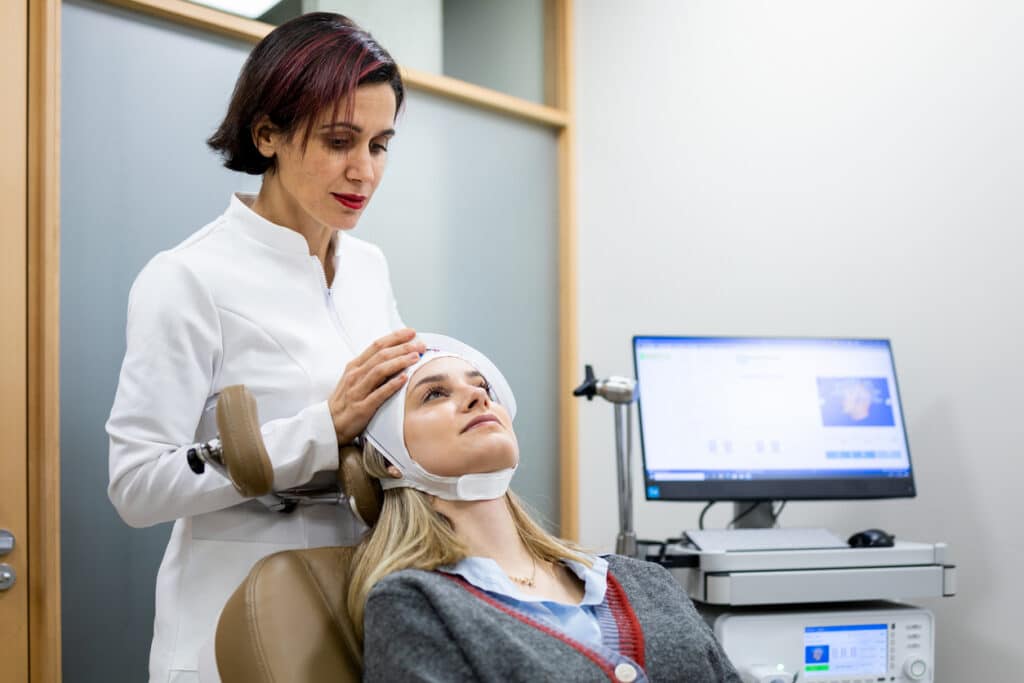Healing the effects of early relational trauma isn’t something that happens by chance. It takes a thoughtful, guided process to repair the damage left by unmet needs, broken trust, and emotional wounds that run deep.
Post Induction Therapy (PIT) offers a path to do that work. It can help you reconnect with your true self, build stronger boundaries, and move toward a life that feels more whole, grounded, and real. Let’s define Post Induction Therapy, who it’s for, and its benefits to help you determine if it’s the right approach for you.

What Is Post Induction Therapy?
Post Induction Therapy is a specialized approach that helps people heal the lasting effects of childhood relational trauma. It focuses on the ways early emotional wounds shape how you see yourself, how you relate to others, and how you experience life.
Through this process, you learn how to reconnect with your true self, release carried pain, build healthy boundaries, and meet your own emotional needs in a way that wasn’t possible before.
The goal is to help you live from a place of truth, self-worth, and real connection, instead of old patterns built around survival.
Who Is Post Induction Therapy For?
Post Induction Therapy is for people who are still carrying the impact of early relational trauma, like emotional trauma and neglect, abandonment, boundary violations, enmeshment, or abuse. It’s for those who might not always know how to explain what they feel, but know deep down that something important was hurt long ago and still affects their lives today.
You might benefit from Post Induction Therapy if you:
– Struggle with shame, self-criticism, or feeling “not good enough,” even when life looks fine on the outside.
– Have a hard time setting or holding boundaries without guilt or fear.
– Find yourself stuck in patterns of codependency, emotional withdrawal, people-pleasing, or chronic conflict in relationships.
– Experience intense emotional reactions that feel bigger than the situation calls for — especially around abandonment, betrayal, or rejection.
– Feel disconnected from your sense of self or unsure of what you want, need, or feel.
– Carry long-standing grief, anger, or sadness that doesn’t seem to fully resolve.
– Want deeper, more authentic relationships but feel scared to be vulnerable or truly seen.
– Notice patterns of self-sabotage, addiction, or compulsive behaviors tied to underlying emotional pain.
– Long to feel whole, worthy, and at peace — not just intellectually, but deep in your body and daily experience.
What Does Post Induction Therapy Work Look Like?
Post Induction Therapy consists of psychoeducation, written work, and experiential processing. It’s about getting to the truth of what happened and how it may have impacted you.
It’s an experience that enables you to:
- Get an accurate history of your life
- Get realistic about relational trauma
- Hold your main caregiver accountable
- Reparent wounded and adapted parts of the self

Benefits of Post Induction Therapy
Post Induction Therapy isn’t just about healing old wounds — it’s about stepping into a life that feels more connected, empowered, and real. As you move through the process, you can experience some powerful shifts that change how you see yourself, your relationships, and your future.
A Stronger Sense of Self
Post Induction Therapy helps you rebuild a relationship with yourself — one where you can love, protect, and care for who you are. When you feel grounded in your own worth, you’re able to make decisions with confidence, set limits that honor your needs, and move through life feeling more whole.
Stronger Boundaries and Healthier Self-Care
Learning to set and hold boundaries creates space for better self-care, emotionally and physically. You’ll be able to spot the moments when you need to step back, rest, or protect your energy — instead of getting caught in cycles of overgiving, resentment, or self-neglect.
Freedom from Carried Emotions
Many people walk around carrying pain that was never theirs to hold. Post Induction Therapy gives you a way to release that weight, making more space inside for joy, presence, and real connection to your life as it is today.
A Safe Place to Grieve
Grieving what you needed and didn’t get is a painful but essential part of healing. This work allows you to honor that loss fully — not to stay stuck in it, but to finally move beyond it, opening the door to deeper acceptance and self-compassion.
Living in the Truth of Your Worth
Instead of questioning your value or chasing it through others, Post Induction Therapy helps you live in the reality that you are already worthy — worthy of love, intimacy, and abundance, without needing to earn or prove it.
Deeper Relational Connection
As you connect more fully to yourself, you become better able to connect with others. Vulnerability stops feeling like a risk you can’t afford and starts feeling like a bridge — a way to build genuine intimacy and belonging.
Stronger Self-Regulation
Triggers and emotional wounds don’t disappear, but Post Induction Therapy helps you respond to them differently. You’ll build the ability to stay grounded in hard moments instead of being overwhelmed or hijacked by old patterns.
Re-Parenting the Parts that Need It
We all have wounded or adapted parts that developed in response to early pain. This therapy helps you identify those parts with compassion and offer them the care, support, and guidance they needed — and still need — from within yourself.
Living from Truth and Power
Instead of reacting out of fear, hurt, or survival instincts, you’ll begin living from a place of truth, strength, and authenticity. Your life becomes less about managing chaos and more about choosing your path with clarity and trust in yourself.

Find Healing at The Meadows
Post Induction Therapy is for anyone who has experienced relational trauma, including, but not limited to, abandonment, neglect, enmeshment, and abuse. At The Meadows, you can experience PIT and recover from the impact of codependency.
If you’re struggling with addiction, shame, and mental health issues, our team is ready to help you find healing and restoration. You can reconnect with your authentic self and learn to thrive again. Contact us today to learn more.
MORE FAQs On Post Induction Therapy
What should I expect in a Post Induction Therapy session?
Sessions often begin with identifying current emotional struggles and linking them to past experiences. Therapists may guide clients through inner-child work, trauma resolution exercises, or guided imagery. The process can be intense and emotional but is conducted in a safe, supportive environment aimed at deep healing.
What is the “wounded child” concept in PIT?
The “wounded child” refers to the part of a person that carries the emotional pain and unmet needs from early life experiences. PIT helps individuals identify and connect with this inner child, allowing them to grieve, heal, and re-parent themselves. This concept is central to breaking patterns rooted in childhood trauma.
How is PIT different from traditional talk therapy?
Unlike traditional talk therapy, which often focuses on current symptoms or thought patterns, PIT delves deeply into the emotional injuries formed in early development. It uses experiential techniques to access and process core pain, rather than just analyzing it cognitively. The goal is to heal the root causes of dysfunction, not just manage surface-level issues.
Is Post Induction Therapy effective for adults with childhood trauma?
Yes, PIT is widely recognized as a powerful approach for adults with childhood trauma. It helps individuals understand how early experiences shaped their identity, relationships, and coping mechanisms. By addressing these underlying wounds, PIT fosters emotional release and long-term healing.
How long does Post Induction Therapy typically take?
The duration of PIT varies depending on individual needs, but many people begin with an intensive format over several days or weeks, followed by ongoing therapy. Some may continue for months as they process deeper layers of trauma. Progress depends on the complexity of the issues and the individual’s readiness for change.
Can PIT be combined with other forms of therapy or treatment?
Absolutely. PIT can complement other types of therapy such as cognitive behavioral therapy (CBT), EMDR, or 12-step programs. Many treatment centers integrate PIT into broader recovery plans, especially for those dealing with trauma, addiction, or co-occurring mental health disorders.



